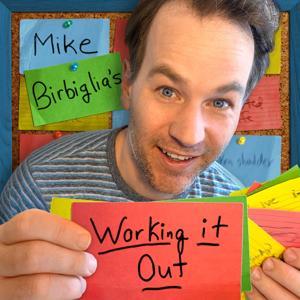Tony welcomes two remarkable trumpet players and educators, Ryan Gardner and Tomislav Špoljar. Ryan is the Associate Professor of Trumpet at the University of Colorado Boulder, where he combines a wealth of experience with a passion for fostering community among trumpet players. Tomislav, based in Croatia, not only performs but also organizes significant music festivals, including the upcoming International Trumpet Guild conference, which seeks to unite trumpet players from around the globe. Together, they share insights into their journeys as trumpet entrepreneurs, their teaching philosophies, and the importance of building a vibrant, international trumpet community.
In Part 1, Ryan and Tomislav dive into the motivations behind organizing the upcoming ITG conference in Croatia. Ryan emphasizes the need to bring the ITG back to Europe, while Tomislav shares the excitement of connecting with musicians and creating lasting memories. One of the standout quotes comes from Ryan, who says, “The community of trumpet players is what keeps me engaged and motivated.” They discuss the challenges and rewards of their roles within the ITG and reflect on their personal journeys in music and education.
In Part 2 [Subscriber Content], Ryan opens up about the profound impact his teachers had on him, including Mark Gould and Vince Penzarella, and how their philosophies shape his teaching today. Tomislav shares his experiences with legendary figures like Maurice André and Pierre Thibault, highlighting the unique lessons learned from each. They also offer insights into their teaching approaches, emphasizing the importance of understanding individual student needs. For those interested in more personal anecdotes and valuable lessons from their mentors, this section is not to be missed. We wrap up by celebrating the exciting future of the trumpet community, with Ryan voicing the hope that, "Our love for the trumpet and music bonds us together."
Dorico
Professional music notation and composition software from Steinberg. Download a free 30-trial today!
Disclaimer: This post contains affiliate links. If you make a purchase, I may receive a commission at no extra cost to you.
Would you like more inspirational stories, suggestions, insights, and a place to continue the conversations with other listeners? Visit anthonyplog-on-music.supercast.com to learn more!
As a Contributing Listener of "Anthony Plog on Music," you'll have access to extra premium content and benefits including:
- Extra Audio Content: Only available to Contributing Listeners.
- Podcast Reflections: Tony's written recaps and thoughts on past interviews, including valuable tips and suggestions for students.
- Ask Me Anything: Both as written messages and occasional member-only Zoom sessions.
- The Show's Discord Server: Where conversations about interviews, show suggestions, and questions happen. It's a great place to meet other listeners and chat about all things music!
- Can I just donate instead of subscribing? Absolutely!
- Cancel at anytime and easily resubscribe when you want all that extra content again.
Learn more about becoming a Contributing Listener @ anthonyplog-on-music.supercast.com!




































